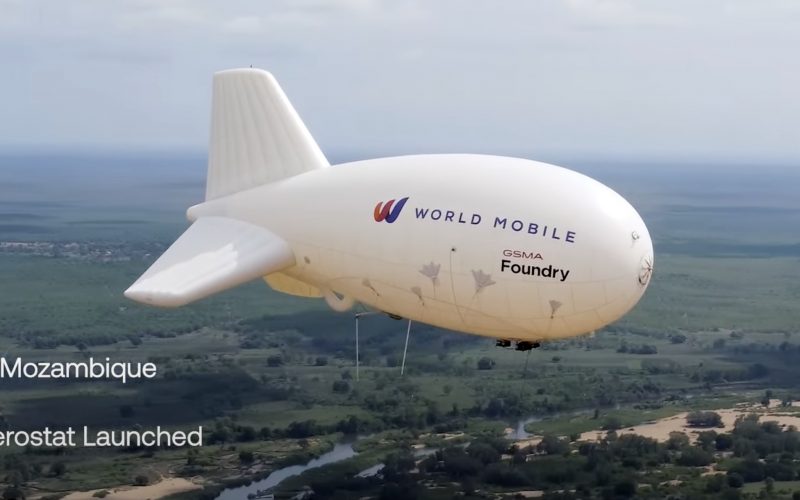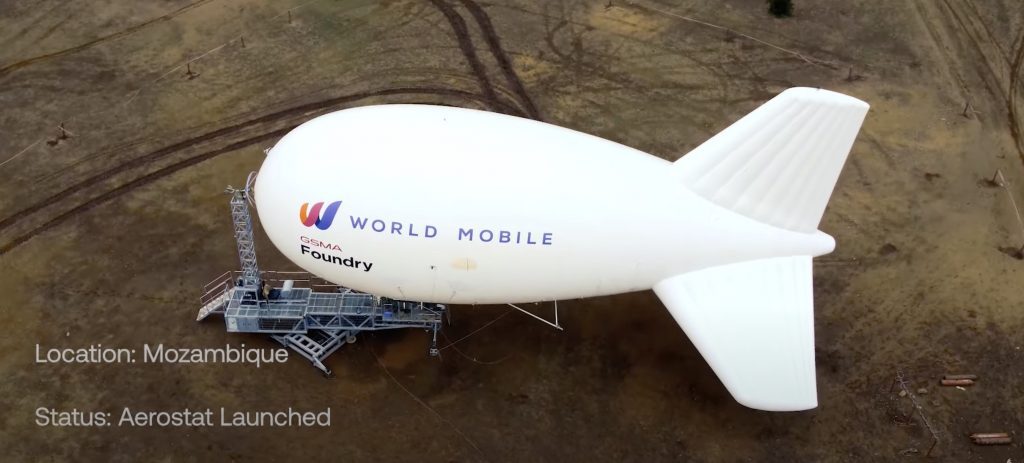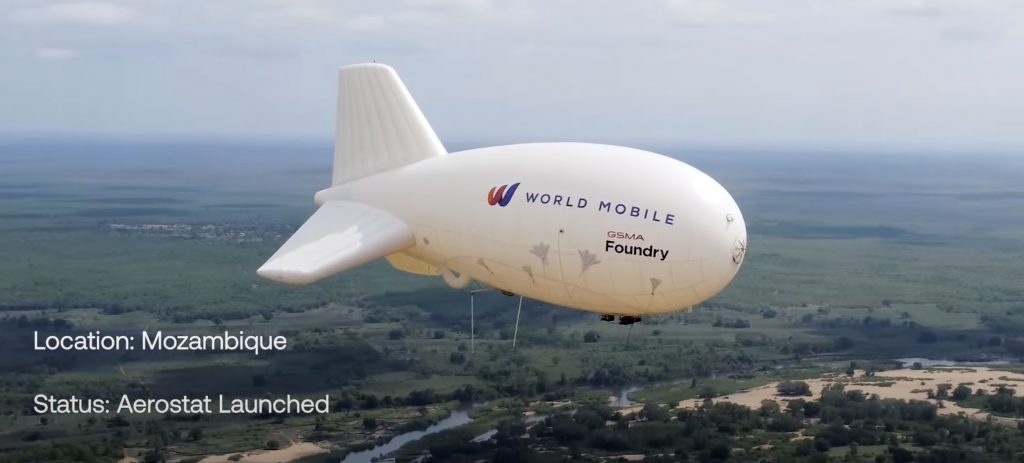
(Images by World Mobile) The push towards sustainability in today’s interconnected world has never been more critical. Industries across the globe are reassessing their environmental and social impacts, striving to align their operations with the principles of sustainability. The telecommunications sector, known for its vast infrastructure and significant energy consumption, is no exception. Among the key players leading this transformation is World Mobile (WMT), a blockchain-based mobile network that is not only reshaping how people connect but doing so with a deep commitment to sustainability.
We are quite impressed by this company’s vision and mission, hence why we also dedicate an article on World Mobile and the different aspects of its business . You will soon realize that it holds a lot of sustainable aspects as its approach is holistic, addressing environmental, social, and governance challenges while empowering underserved communities. By leveraging cutting-edge technology and an innovative decentralized model, World Mobile is proving that it is possible to bridge the digital divide while promoting sustainability at every level of operation.
Let’s dive into this rather interesting technology project project. But let’s first have a look who is behind World Mobile.
- 1 About World Mobile
- 2 Decentralized Network for Environmental Efficiency
- 3 World Mobile Tethered Balloons aka Aerostats
- 4 Renewable Energy Integration
- 5 Empowering Communities with Sustainable Development
- 6 Reducing E-Waste Through Longevity and Reusability
- 7 Promoting Social Sustainability
- 8 Ethical Governance and Transparency
- 9 World Mobile in Numbers
- 10 World Mobile Token (WMT)
- 11 World Mobile, Not Just a Telecommunications Company
About World Mobile

World Mobile is the brainchild of Micky Watkins, an experienced entrepreneur in the telecommunications industry. Through his past experiences Watkins, who serves as the CEO and founder of World Mobile, got to understand the limitations inherent in traditional telecom models, particularly in their inability to connect remote and underserved regions effectively. As a result Watkins founded World Mobile with the rather ambitious goal of building a decentralized mobile network that could deliver reliable and affordable connectivity to areas that have historically been left behind by conventional telecom operators.
Under Watkins’ leadership, World Mobile has assembled a diverse team of experts from various fields, including blockchain technology, telecommunications, and sustainability. The company’s approach is innovative, leveraging a decentralized model that integrates blockchain technology, particularly through a partnership with Input Output Global (IOG), the creators of the Cardano blockchain.
In addition to its internal team, World Mobile benefits from the expertise of a global network of advisors and partners. Strategic partnerships with technology providers, renewable energy companies, and local telecom operators are also critical to the company’s success, particularly in the regions where World Mobile is active.
Funding for World Mobile has come from a variety of sources, including venture capital firms and private investors who share the company’s mission of bridging the digital divide. This financial backing has been crucial in developing the network infrastructure, deploying nodes, and expanding operations into new regions.
A unique aspect of World Mobile’s approach is its commitment to community involvement. The company operates on a decentralized model, allowing users to own and operate parts of the network. Community members can become AirNode operators or stake World Mobile Tokens (WMT) to support the network’s growth. This community-driven approach ensures that the network expands organically and sustainably, with local stakeholders directly benefiting from its success.
Decentralized Network for Environmental Efficiency
The traditional telecom industry is heavily reliant on centralized data centers—massive facilities that consume vast amounts of energy, contributing to the telecom sector’s growing carbon footprint. These data centers, often powered by non-renewable energy sources, are necessary for maintaining the infrastructure that supports global communication networks. However, their environmental impact cannot be overlooked.
World Mobile’s decentralized network architecture offers a refreshing alternative. Rather than concentrating all network operations in a few central locations, World Mobile distributes its network through a series of smaller, localized nodes known as AirNodes. This decentralized approach has multiple sustainability benefits, the foremost being energy efficiency.
By spreading out the network across various locations, World Mobile reduces the need for large, energy-intensive data centers. Each AirNode operates independently, requiring significantly less power than traditional infrastructure. Additionally, because these nodes are closer to end users, they reduce the energy costs associated with data transmission, which in traditional networks can be substantial.
For example, in Zanzibar, Tanzania, World Mobile has rolled out a pilot program deploying these AirNodes to provide internet connectivity to remote and underserved areas. The decentralized network not only ensures more reliable and localized service but also contributes to reducing the overall carbon footprint associated with maintaining a telecom network. In a region where access to energy can be inconsistent, World Mobile’s model is both a practical and environmentally conscious solution.
World Mobile Tethered Balloons aka Aerostats


Apart from airnodes, World Mobile employs a unique approach to extending internet connectivity to underserved and remote areas through the use of tethered balloons, commonly referred to as aerostats. These balloons are a key part of their hybrid dynamic network, designed to deliver reliable and affordable internet access where traditional infrastructure is either too expensive or impractical.
Several companies and projects have explored and implemented similar technologies in the past, aiming to provide internet connectivity to remote and underserved areas. One of the most notable examples is Project Loon by Google (Alphabet), which sought to create a network of high-altitude balloons to deliver internet access to rural and remote regions.

However, World Mobile’s use of tethered balloons, or aerostats, differs from these high-altitude projects in several ways:
- Altitude: World Mobile’s balloons are tethered at much lower altitudes (300-500 meters) compared to stratospheric balloons like those used in Project Loon, which operate at 18-25 kilometers.
- Tethered vs. Free-Floating: World Mobile’s balloons are anchored to the ground, allowing them to stay in a fixed position, whereas Project Loon’s balloons were free-floating and navigated by adjusting their altitude to catch wind currents.
- Cost and Complexity: The lower altitude and tethered nature of World Mobile’s balloons make them less complex and costly to deploy and maintain compared to high-altitude solutions like Project Loon.
How the Balloons Work
- Tethered Aerostats: The balloons used by World Mobile are filled with helium and tethered to the ground. Unlike free-floating weather balloons, these aerostats remain anchored, allowing them to maintain a fixed position above the area they serve.
- Elevation and Coverage: The balloons are deployed at elevations of around 300 to 500 meters (approximately 1,000 to 1,600 feet). At this height, each balloon can cover a wide area, often up to 70 kilometers in diameter, depending on the terrain and environmental conditions. This high-altitude placement enables them to bypass obstacles like buildings, trees, and uneven terrain, providing unobstructed line-of-sight coverage.
- Telecom Equipment: Each balloon is equipped with telecommunications gear, including antennas and radios, which can relay signals from a ground station to users’ devices. The balloons serve as floating cell towers, providing coverage in a similar manner to traditional ground-based cell towers, but with a much broader range due to their elevation.
- Cost-Effective Deployment: The use of these aerostats is significantly more cost-effective than building traditional cell towers, particularly in remote or rugged areas. They can be quickly deployed and are relatively inexpensive to operate compared to constructing and maintaining a network of towers.
- Durability and Maintenance: The balloons are designed to be durable, withstanding various weather conditions, though they may require periodic maintenance or replacement. The tethered nature of the aerostats ensures they remain in a fixed position, making them easier to monitor and service.
- Real-World Implementation: World Mobile has initiated aerostat trials in various regions, including a partnership with Vodacom Mozambique. This project focuses on enhancing rural connectivity using tethered balloons, demonstrating the feasibility and impact of this technology in providing internet access to underserved areas.
Impact and Benefits of the World Mobile Aerostats
- Wide Area Coverage: The balloons’ ability to cover large areas with a single deployment makes them ideal for regions where population density is low, and traditional infrastructure investment is not economically viable.
- Rapid Deployment: In disaster-stricken or isolated regions, these balloons can be deployed quickly to restore or establish communications.
- Sustainability: The balloons can be powered by renewable energy sources, such as solar panels, further aligning with World Mobile’s commitment to sustainability.
World Mobile’s use of tethered balloons is an innovative solution that addresses the challenges of connecting remote and underserved communities. By leveraging this technology, they are not only extending internet access but doing so in a cost-effective and sustainable manner.
Renewable Energy Integration
We touched already in the previous section, but World Mobile’s commitment to sustainability extends beyond the architecture of its network. A critical aspect of their strategy is the integration of renewable energy sources, particularly solar power, into their operations. In many of the remote areas where World Mobile is active, traditional energy infrastructure is either lacking or unreliable. This situation presents both a challenge and an opportunity to innovate in how these networks are powered.
Solar energy, abundant in many of the regions World Mobile serves, is the cornerstone of their renewable energy strategy. By equipping AirNodes with solar panels, World Mobile ensures that its network infrastructure is powered sustainably..
For instance, in rural areas of Nigeria, World Mobile has deployed solar-powered AirNodes to connect communities that were previously off the grid. These solar-powered nodes are not just an environmentally friendly solution; they are also economically viable, as they eliminate the need for costly diesel generators, which are often used in off-grid telecom installations. The result is a network that is both sustainable and resilient, capable of providing reliable service in areas where traditional telecom infrastructure would be prohibitively expensive or environmentally damaging.
Empowering Communities with Sustainable Development
While environmental sustainability is a key focus for World Mobile, their commitment to sustainability also encompasses social and economic dimensions. At the heart of World Mobile’s mission is the goal of empowering underserved communities by providing them with affordable access to the internet. In a world where nearly half the population remains offline, this mission is both urgent and transformative.
Access to the internet is increasingly recognized as a fundamental human right, essential for accessing education, healthcare, and economic opportunities. However, in many parts of the world, particularly in Africa and Asia, millions of people remain disconnected due to a lack of infrastructure and high costs. World Mobile’s innovative approach seeks to bridge this digital divide by deploying decentralized, community-managed networks that bring connectivity to the most remote and underserved areas.
In Zanzibar for example, World Mobile has partnered with local communities to establish a decentralized network that provides affordable internet access to thousands of residents. This initiative is not just about technology; it’s about creating a sustainable ecosystem where local communities play a central role in maintaining and benefiting from the network.
Community members are trained to operate and maintain the AirNodes, which provides them with a steady income and fosters a sense of ownership over the network. This model not only ensures the sustainability of the network but also contributes to local economic development. By empowering local communities to manage their own connectivity, World Mobile is creating a more equitable and sustainable model of internet access.
Moreover, the economic benefits of connectivity are substantial. Studies have shown that increasing internet penetration can significantly boost GDP growth, particularly in developing countries. By providing affordable access to the internet, World Mobile is enabling individuals and businesses in these regions to participate in the global digital economy, access new markets, and improve their livelihoods.
Reducing E-Waste Through Longevity and Reusability
Another critical aspect of sustainability in the telecom industry is the issue of electronic waste (e-waste). As technology advances rapidly, older equipment often becomes obsolete, leading to significant amounts of waste. The telecom industry is a major contributor to this problem, with outdated devices and infrastructure frequently discarded in favor of newer, more advanced technology.
World Mobile addresses this challenge head-on by designing its hardware with longevity and upgradability in mind. The AirNodes used in their decentralized network are built to last and can be easily upgraded rather than replaced. This approach not only extends the life of the equipment but also reduces the amount of e-waste generated.
For example, in their deployments in East Africa, World Mobile ensures that AirNodes are designed to be modular, allowing for components to be easily replaced or upgraded as technology evolves. This reduces the need for complete hardware replacements, which in turn minimizes the environmental impact of their operations.
In addition to this, World Mobile actively seeks partnerships with organizations focused on recycling and repurposing old telecom equipment. These partnerships are crucial in regions where the infrastructure for recycling e-waste is often lacking. By working with local and international partners, World Mobile ensures that any equipment that does reach the end of its useful life is disposed of in an environmentally responsible manner.
This focus on reducing e-waste is part of a broader industry trend towards a circular economy, where products are designed to be reused, refurbished, or recycled, rather than discarded. By prioritizing durability, upgradability, and recycling, World Mobile is contributing to this shift, helping to reduce the environmental impact of the telecom industry as a whole.
Promoting Social Sustainability
Beyond environmental and economic sustainability, World Mobile’s approach also has important social implications. In many of the regions where World Mobile operates, the lack of internet connectivity exacerbates existing inequalities, limiting access to education, healthcare, and economic opportunities. By providing affordable and reliable internet access, World Mobile is not only addressing these inequalities but also fostering social sustainability.
Education is one of the key areas where World Mobile’s impact is most evident. In many parts of Africa and Asia, students in rural areas often lack access to the same educational resources as their urban counterparts. This digital divide means that millions of children are deprived of the opportunity to learn, develop skills, and reach their full potential. World Mobile’s decentralized network model is helping to bridge this gap by bringing online educational resources to remote communities.
For instance, in Zanzibar, the deployment of World Mobile’s network has enabled schools in rural areas to access online educational content, participate in virtual classrooms, and connect with teachers and students from around the world. This access to information and digital resources is crucial in improving educational outcomes and ensuring that students in these regions have the same opportunities as those in more developed areas.
Healthcare is another area where World Mobile’s impact is profound. In many remote regions, access to healthcare is limited, with patients often having to travel long distances to see a doctor or receive treatment. The lack of connectivity further compounds this issue, as telemedicine and digital health services remain out of reach for those who need them most.
World Mobile’s network is helping to change this by enabling telemedicine services in remote areas. In regions like Nigeria and Tanzania, where World Mobile has deployed its network, healthcare providers can now offer remote consultations, diagnosis, and even treatment through telemedicine platforms. This not only improves access to healthcare but also reduces the need for patients to travel, saving time and resources.
The social sustainability impact of World Mobile’s work also extends to economic development. By providing affordable internet access, World Mobile is enabling entrepreneurs and small businesses in remote regions to connect with global markets, access new customers, and grow their businesses. This increased economic activity has a ripple effect, creating jobs, boosting local economies, and improving the overall quality of life in these communities.
Ethical Governance and Transparency
In addition to its environmental and social sustainability efforts, World Mobile is committed to ethical governance and transparency. The telecom industry has often been criticized for its lack of transparency, with decisions made behind closed doors and little accountability to the public. World Mobile is challenging this norm by embedding transparency and ethical governance into the core of its operations.
At the heart of World Mobile’s governance model is blockchain technology. Blockchain provides an immutable, transparent ledger of all transactions and decisions, ensuring that every action taken by the network is visible and accountable. This transparency is crucial in building trust among users, operators, and stakeholders, particularly in regions where trust in institutions may be low.
World Mobile’s governance model is also designed to be inclusive and participatory. Unlike traditional telecom operators, where decisions are often centralized, World Mobile allows community members and network users to have a say in key decisions. This participatory approach ensures that the network’s operations are aligned with the needs and values of the communities it serves, making it more sustainable in the long term.
In Zanzibar community members are actively involved in the governance of the network, from managing AirNodes to participating in decisions about network expansion and service offerings. This level of involvement not only empowers communities but also ensures that the network is responsive to local needs and priorities.
Moreover, World Mobile’s commitment to transparency extends to its environmental and social impact. The company regularly publishes reports on its sustainability efforts, including energy consumption, carbon emissions, and community engagement initiatives. This level of openness not only reinforces World Mobile’s credibility but also sets a new standard for accountability in the telecom industry.
World Mobile in Numbers
Here is some detailed data on World Mobile (WMT) based on the latest available information:
User Base and Coverage
- Global Users: World Mobile has successfully connected over 20,000 users in Zanzibar, which is part of their initial deployment phase. They are rapidly expanding to other regions, including parts of Nigeria, Tanzania, Pakistan and rural areas in the UK and USA.
- AirNodes Deployed: As of now, there are 1,891 AirNodes deployed globally. These nodes are the backbone of World Mobile’s decentralized network, providing local connectivity in hard-to-reach areas.
- Network Uptime: The network has maintained an impressive uptime of over 826 days, proving its reliability and resilience .
- Daily Active Users: The network has already recorded 102,238 unique users in a 24-hour period, indicating a large engagement and usage.
- Data Consumption: In the same 24-hour period, the network saw a data consumption of 11.29 TB, showing the extensive use of internet services provided by World Mobile .
Expansion and Deployment
- Zanzibar: This region is a huge success story for World Mobile, with over 20,000 users connected. This deployment demonstrates the effectiveness of their hybrid dynamic network technology, which offers connectivity at a fraction of the cost of traditional telecom models.
- Pakistan: World Mobile has launched its first deployment in Pakistan, marking its entry into the Asian market. This rollout is expected to significantly impact local connectivity, especially in underserved areas.
- United States: World Mobile has secured spectrum licenses in several states, including California, New Mexico, Nevada, and Utah.
- UK (Wales): In the UK, World Mobile has chosen rural Wales to demonstrate its cellular AirNode technology, which utilizes Starlink’s low Earth orbit (LEO) satellites for backhaul.
Tokenomics and Node Operation
- WMT Token Circulation: The World Mobile Token (WMT) is integral to the network’s operation, facilitating payments, staking, and rewards. As of the latest updates, the token’s supply is capped, with ongoing transactions and staking maintaining the network’s security and expansion.
- Node Incentives: Node operators, including those managing EarthNodes, AirNodes, and AetherNodes, are incentivized with WMT rewards. These rewards come from transaction fees and network usage, ensuring that operators are motivated to expand and maintain the network.
World Mobile Token (WMT)
World Mobile Token (WMT) is an integral part of World Mobile’s decentralized mobile network, and it plays a crucial role in incentivizing network participation, ensuring security, and enabling economic opportunities for both node operators and stakers.
▶️ With the Reno sharing economy now in full swing, watch AirNode Host-Operator, Batuhan, explain the feeling of earning rewards in return for helping to connect your community.
— World Mobile (@WorldMobileTeam) August 2, 2024
🤫 Spoiler Alert: "It's gravy…"#WorldMobile #AirNode pic.twitter.com/iDu7BHylVv
How Partners Can Earn Money with WMT
World Mobile Token (WMT) is the native cryptocurrency of the World Mobile network. It serves multiple functions within this decentralized mobile network, primarily facilitating transactions, incentivizing network participation, and rewarding node operators and stakers. WMT is used to pay for services like data usage, calls, and texts on the World Mobile network, and it also rewards those who contribute to the network’s operations, such as running nodes or staking tokens.
Essentially, WMT underpins the economic model of World Mobile, driving both the expansion and sustainability of the network while enabling users and partners to earn through their participation.
- Node Operation: Partners can earn WMT by becoming node operators within the World Mobile network. There are different types of nodes—AirNodes, EarthNodes, and AetherNodes—each with specific roles:
- AirNodes: These are the decentralized network nodes that provide local connectivity, often in remote or underserved areas. By owning or operating an AirNode, partners earn WMT whenever users connect to their node for internet access, calls, or messaging. The earnings come from the usage fees paid by the end users.
- EarthNodes: These nodes process transactions on the network and contribute to maintaining the blockchain. EarthNode operators are rewarded with WMT for processing these transactions and ensuring the smooth operation of the network. The rewards are funded through the fees collected from network activities.
- AetherNodes: These nodes act as the bridge between legacy infrastructure and the World Mobile network, connecting countries and ensuring broader coverage. Like EarthNodes, AetherNode operators earn WMT for handling network traffic and ensuring connectivity across different regions.
- Staking: Another way to earn WMT is through staking. Token holders can stake their WMT by delegating them to node operators, supporting the network’s operations. In return for staking their tokens, users receive rewards in the form of additional WMT. The staking rewards are designed to encourage long-term engagement and help secure the network by involving a broader community in its operation.
- Transaction Fees: WMT also plays a role in the payment of transaction fees within the World Mobile ecosystem. Users pay for telecom services like data usage, calls, and texts using either WMT or local currency, depending on the region and regulatory environment. The fees collected are partially used to purchase WMT from open markets, which are then distributed as rewards to node operators and stakers. This creates a cycle where the use of the network directly supports its expansion and the earnings of its participants.
- Incentives for Expansion: World Mobile has built in additional incentives for partners who help expand the network. Node operators who deploy nodes in new areas, particularly those that were previously unconnected, can earn extra WMT rewards. This incentivizes the growth of the network into regions where traditional telecom companies may not find it profitable to operate.
World Mobile, Not Just a Telecommunications Company
World Mobile is more than just a telecommunications company; it is a beacon of sustainability in an industry that is increasingly aware of its environmental and social responsibilities. Through its decentralized network architecture, commitment to renewable energy, focus on reducing e-waste, and efforts to empower underserved communities, World Mobile is setting a new standard for what it means to be a responsible telecom operator.
In Zanzibar, Nigeria, Tanzania, and beyond, World Mobile is proving that it is possible to build a telecommunications network that is both sustainable and inclusive. By prioritizing environmental efficiency, social sustainability, and ethical governance, World Mobile is not only connecting the unconnected but also paving the way for a more sustainable and equitable future.
Companies like World Mobile offer a blueprint for how technology can be leveraged to create positive change. Their holistic approach to sustainability—encompassing environmental, social, and governance factors—demonstrates that it is possible to build a business that is both profitable and responsible.
